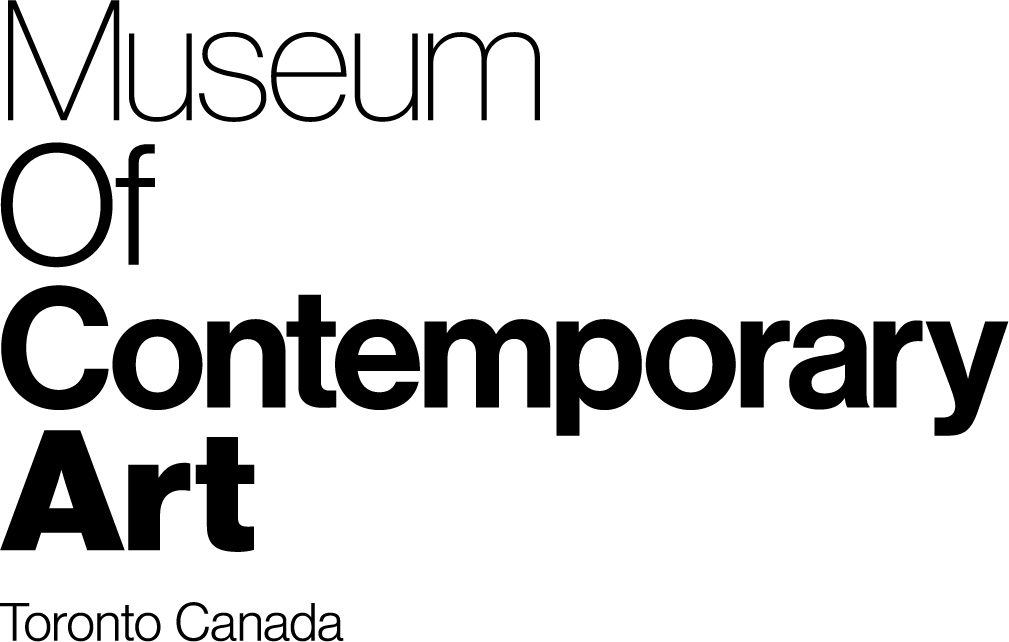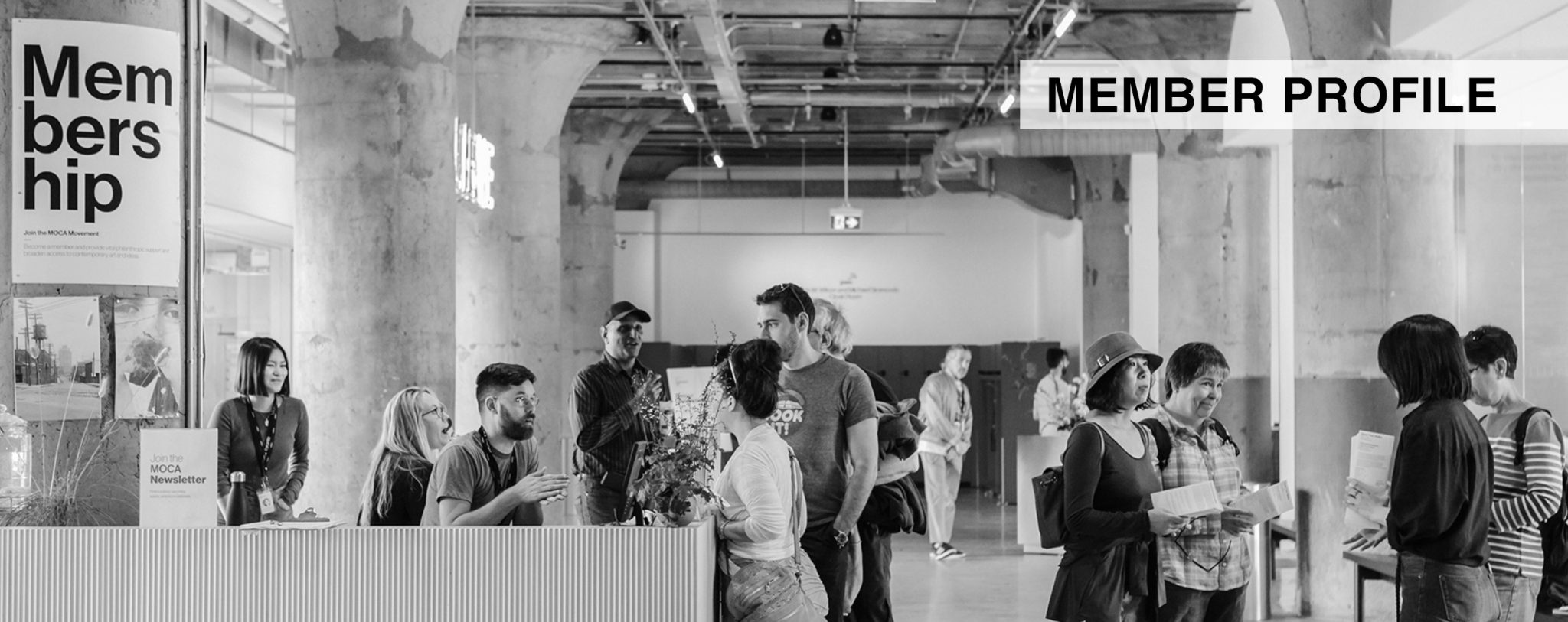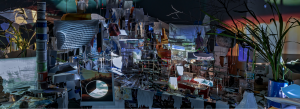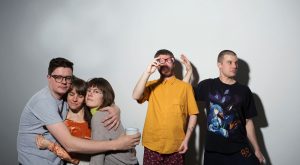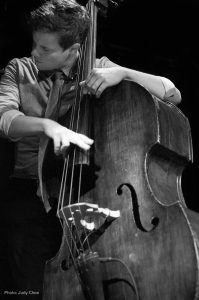Toronto bassist Daniel Fortin’s love for art galleries began in his hometown of Peterborough where he visited Artspace and Markethall as a kid. Since then, his eclectic tastes and stylistic flexibility have led to work with a wide variety of artists in the jazz, rock and pop worlds. Learn more about Daniel’s art practice, teaching career, and a very timely project he started prior to the province-wide lockdown called Solo Bass.
What made you join MOCA and what has been a memorable visit to the museum?
I’ve always loved art galleries. I grew up in Peterborough, and spent a lot of time at Artspace and the Market Hall as a kid. I joined MOCA as a way to further engage with the contemporary art scene in Canada. I always love spending a couple of hours at a gallery, but I also love wandering in for 15 or 20 minutes on a whim (which is much easier and more affordable if you’re a member.) I really enjoyed my last visit to MOCA in February, and was hoping to see the current exhibitions again, but COVID-19 put a stop to those plans. I was especially looking forward to hanging out with Sarah Sze’s Images in Debris some more.
Sarah Sze, Images in Debris, 2018. MOCA Toronto. Courtesy the artist, Victoria Miro Gallery, London and Tanya Bonakdar Gallery (New York and Los Angeles). Photo by Toni Hafkenscheid.
Tell us a little about your work as an artist and educator and what you’re working on right now.
I’m a bassist – primarily a double bassist, and mostly in the jazz/improvised music scene, though I hop around a bit. I do a lot of freelance work, but in the last few years most of my creative energy has been devoted to a few specific bands: the experimental pop band Bernice, the modern jazz trio Myriad3, the chamber group Queer Songbook Orchestra, and others. My friend Michael Davidson and I formed an imprint called Elastic Recordings about a year ago, which we’re using as a launching pad for a few different projects, including our duo record Clock Radio.
I’ve always enjoyed teaching – I don’t really see it as being separate from my life as a performer. This past year, I started teaching private lessons in the Jazz Studies department at the University of Toronto’s Faculty of Music, which has been really fun and enlightening.
Where can we find more of your work in the digital space?
I have my own website where I list gigs and recordings, and the bands that I play in are active on all the socials. I also have a personal Instagram account, but I mostly use it for jokes (@danielrfortin) For years now, I’ve also maintained an account called @crappyislands where I collect screen captures of poorly vectored land masses on Google Maps – all kinds of places on the planet that in reality are probably extremely beautiful, but that Google hasn’t noticed yet.
Lucian Gray/Adam Aruda Quintet: Short Story by Kenny Dorham.
Artists everywhere are struggling with the global health crisis in very varied yet immediate ways. Can you describe the ways in which the crisis has impacted your work and the community and resources you’re relying on to find a new way of working and sharing your art?
My whole musical life is based around playing live in a room with other people, so not being able to do that has been a real a shock to the system (creatively and financially). It’s given me a chance to catch up on a lot of listening though, which has been nice. Somewhat ironically, the main project I’m working on right now is a solo double bass record (another Elastic Recordings project.) I started writing the music a couple of years ago, having no idea that it would eventually be the only kind of music I’d be able to play. So, in a strange way, this project has kind of prepared me for our current reality.
I’ve yet to perform on a live stream since the pandemic began, though I will soon enough when I release this album. The prospect of playing for an audience that I can’t see makes me kind of nervous, which is odd, since I don’t usually experience much stage fright playing in front of a live audience. It’s a new medium, in a way. As for recording, I’ve had a few discussions about how recording will work if you can’t gather together for rehearsals beforehand, let alone in a studio. I’m curious to see what happens as people are forced to adapt, especially with improvised music, where playing simultaneously alongside your bandmates is the whole point. I’m not sure what we’ll end up with, but it’s going to be a very different kind of music.
The Band Bernice, courtesy the artist
Who are some local artists in your field of work or outside that you’ve been following and admiring?
There are way too many to list here, but one series I’ve been enjoying during quarantine is the Holy Oak Family Singers Variety Hour, in support of the Tranzac. It’s on Twitch most Thursdays at 7pm. Follow the Tranzac for updates!
Different arts disciplines have a tendency to be isolated from each other. In this new digital space that has brought down barriers in a way, are there particular spaces or communities you hope to be able to participate in more?
There are so many art forms that I love, and that I don’t go out to see enough – I’m always kicking myself about that, and doubly so now that I can’t go out at all. But with so much time on my hands, I’ve been enjoying watching some dance through the Toronto Dance Theatre, theatre from the National Theatre in the UK and some more experimental forms of music making such as Quarantine Concerts. And every day, there are new ways to experience art online through great initiatives like Field Trip, which MOCA participates in as well.
As great as all these digital offerings are, it’s really brought home to me how important it is to experience art in person, if you can. One of my big hopes about this experience we’re all having now is that everyone else comes to this same realization. And then they will all come to my gigs (jk.)
What is one really great piece of art you came across since the lockdown began?
I’m reading a couple of books right now that have me reconsidering the usual ways I think about art: Ted Gioia’s Music: A Subversive History and Benjamin Moser’s biography of Susan Sontag. Both very good.
Learn more about Daniel’s work here.
Interested in being featured in the next member profile? Reach out to us at membership@mocalegacy.webpreview.site
Banner Photo by Gabriel Li.
